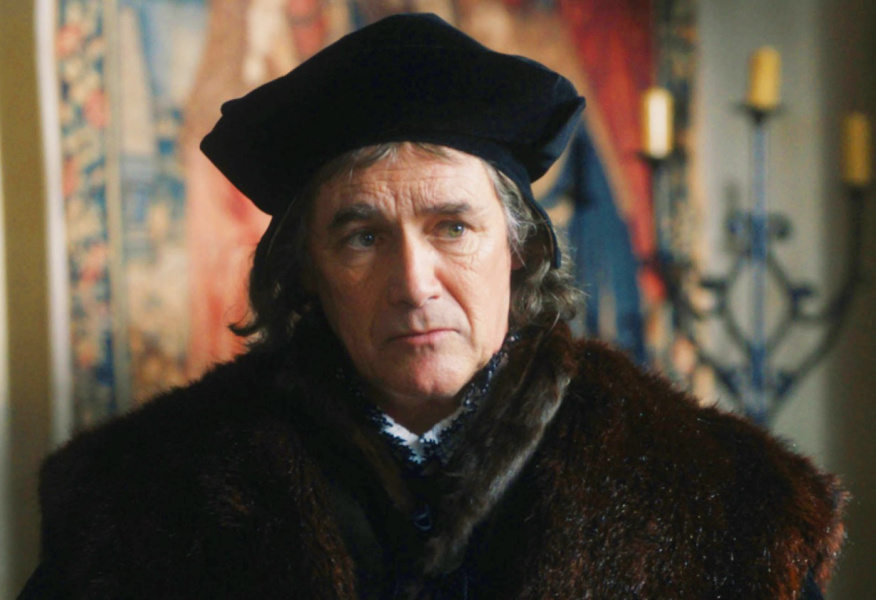– Two Towering Performances:
Lewis and Rylance –
by Ben Dowell | The Times | December 15, 2024
Five out of Five Stars
Anyone who found themselves absorbed by Hilary Mantel’s peerless Thomas Cromwell novels or the BBC’s sublime adaptation, Wolf Hall: The Mirror and the Light (BBC1), will have been dreading Sunday night’s inevitable final moment: July 28, 1540, when Cromwell, played by Mark Rylance, laid his head on the chopping block.
It is hard to read the passages without weeping. Indeed, when Mantel was writing the final book in the trilogy and suddenly realised how she was going to frame his final moments, she cried on her shopping (she was in Sainsbury’s, of all places). Her last passages returned to the start of her opus, with Cromwell recalling a savage beating from his abusive father, Walter, and being told to “get up”. The tragic irony, on the scaffold, was that getting up was the last thing he could do. His world turned black.
For the small screen, the director Peter Kosminsky and the scriptwriter Peter Straughan — whose distillation of thousands of pages of text into 12 episodes of drama has been a marvel — chose a different, but no less legitimate, tack. They landed on Cromwell’s hopes for a quiet retirement among the honey bees of Launde Abbey. Our final look at Rylance’s wintry, careworn face, creased by myriad worries and thoughts, was of his fantasies of the summery end to a career in politics that never came. We never saw the axe descend, though, and I felt grateful for that.
Up to that point, Rylance’s Cromwell dominated every scene, as he has throughout a story told entirely from his perspective. So while we knew he couldn’t avert his fate, he at least had his say, sitting in the same quarters in the Tower that held Anne Boleyn (whom Cromwell himself had dispatched) and swatting away his enemies with doomed relish.
Timothy Spall’s spittle-flecked, brutish Duke of Norfolk, and the other slimy, self-seeking plotters who brought Cromwell down, went through the formalities of the many absurd charges, which Cromwell often answered with a smirk. While he was done for, he held sway, almost enjoying himself. Foreign powers will enjoy dealing with the “slow grindings” of Norfolk’s brain, was one message. You will miss me when I’m gone. History probably proved him right.
The most spellbinding scene came with his final farewell to Rafe Sadler (Thomas Brodie-Sangster), the lad he had apprenticed and who was with him to the end. A single tear streaked down Cromwell’s face but there was triumph here too when he reflected on the judgment that Henry himself would face from God. “Now,” he told Rafe, “it’s time for you to go.” It felt as though he was talking to viewers as we took our own leave of this magnificent, complicated man.
Many historians will dispute Mantel’s reading of Cromwell, pointing to the brutal things the real man did in the service of the king, and will accuse her of whitewashing him, turning him into an all too modern-seeming, kindly idealist. It’s a worthwhile discussion but, as a televisual experience, this has been never less than absorbing and wholly gripping.
The delicate haunting music, the fabulous furs and the wood-panelled grandeur all played their part but above all else were two towering performances. Damian Lewis perfectly captured Henry’s jovial menace throughout, while Rylance has simply shown the heights of emotional intelligence that small-screen performances can aspire to. This drama, unlike the life of the man it chronicled, has been a complete triumph.
Read the rest of the original article at The Times
